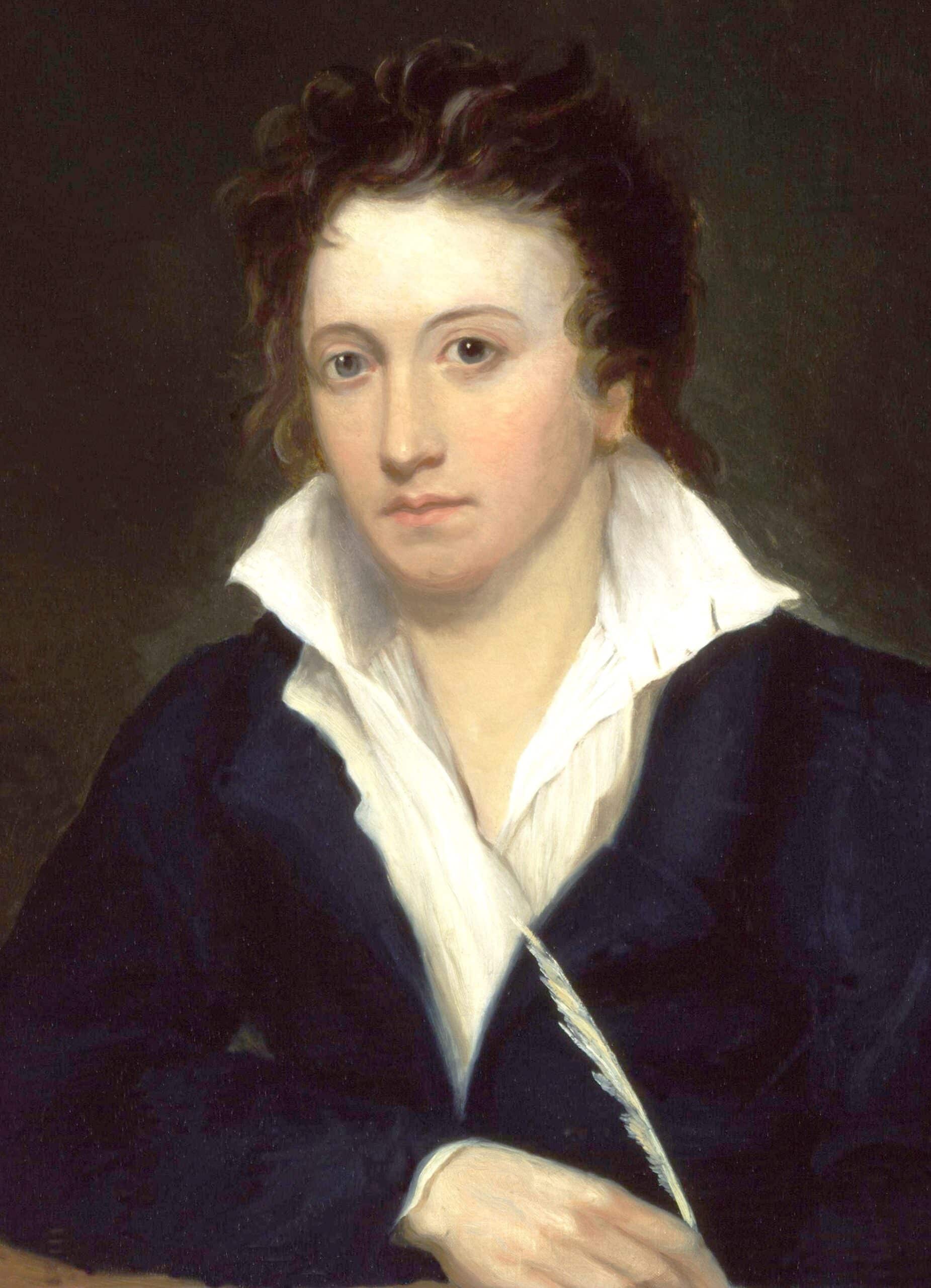
FULL POEM - SCROLL DOWN FOR LINE-BY-LINE ANALYSIS

LINE-BY-LINE ANALYSIS
STANZA 1
The fountains mingle with the river
And the rivers with the ocean,
The winds of heaven mix for ever
With a sweet emotion;
These first four lines of the poem depict the interaction of nature in the natural world. The imagery of ‘the fountains’ mingling ‘with the river’ ‘and the rivers with the ocean’ personifies the water flowing together and intertwining as the physical connection between two lovers, with Shelley looking to nature to inspire the romanticism in his life and work. The divine image of ‘the winds of heaven’ mixing symbolises a religious encouragement for affection.
Nothing in the world is single;
All things by a law divine
In one spirit meet and mingle.
The speaker hyperbolically claims that ‘nothing in the world is single’, with caesura adding emphasis and certainty to this statement. But, instead, everything is connected, meeting and mingling by way of a ‘law divine’, or a law imposed by God – suggesting that it would be sinful to go against it.
Why not I with thine?—
The first stanza, like the second, ends with a rhetorical question which sees the speaker questioning why, with everything connected in nature, he is alone and not with the woman we assume that he loves. Shelley creates an emotive and personal tone through this rhetorical question and the use of direct address from the speaker to this woman. The caesura at the end of the line suggests that the question goes unanswered, implying that it is likely that this love is not reciprocated.
STANZA 2
See the mountains kiss high heaven
And the waves clasp one another;
These metaphors depict nature interacting with intimacy, with each connoting sexual romance and passion. This implies that the speaker not only desires to be connected to the woman he addresses in an emotional sense but also in a sexual, intimate sense aroused by his perception of the natural world.
No sister-flower would be forgiven
If it disdained its brother;
These two lines enforce the idea that the speaker’s love for this woman is not reciprocated, with the ‘sister-flower’ acting as a symbol for her and ‘its brother’ a symbol for him, intended to illustrate that they are destined to be together. The speaker claims that it would be unforgivable (the concept of forgiveness, vital in Christianity, is another biblical reference) if the woman prevents this as, linking back to the previous stanza, it would be sinful to do so.
And the sunlight clasps the earth
And the moonbeams kiss the sea:
Shelley’s use of polysyndeton (repetition of the conjunction ‘and’) has a cumulative effect, emphasising the multitude of ways in which nature is connected and interacts. These two lines are syntactic parallels due to their structural symmetry and, like the first two lines of this stanza, paint a very intimate picture of nature’s interaction which is emphasised by their parallelism. The sunlight and the moonlight signify light and warmth which symbolise passion.
What is all this sweet work worth
If thou kiss not me?
The alliteration of the ‘w’ sound and the assonance (repetition of vowel sounds) in the penultimate line create a slower, introspective conclusion to the poem as the speaker considers all that he observes in nature and compares it to his own life and emotions. The rhetorical question is, again, an example of emotive language which sees the speaker questioning the purpose of nature, perhaps even the purpose of existence, if he cannot be together with the woman that he loves. Concluding with a rhetorical question is tragic because the speaker’s longing for intimacy goes unanswered and unresolved.


